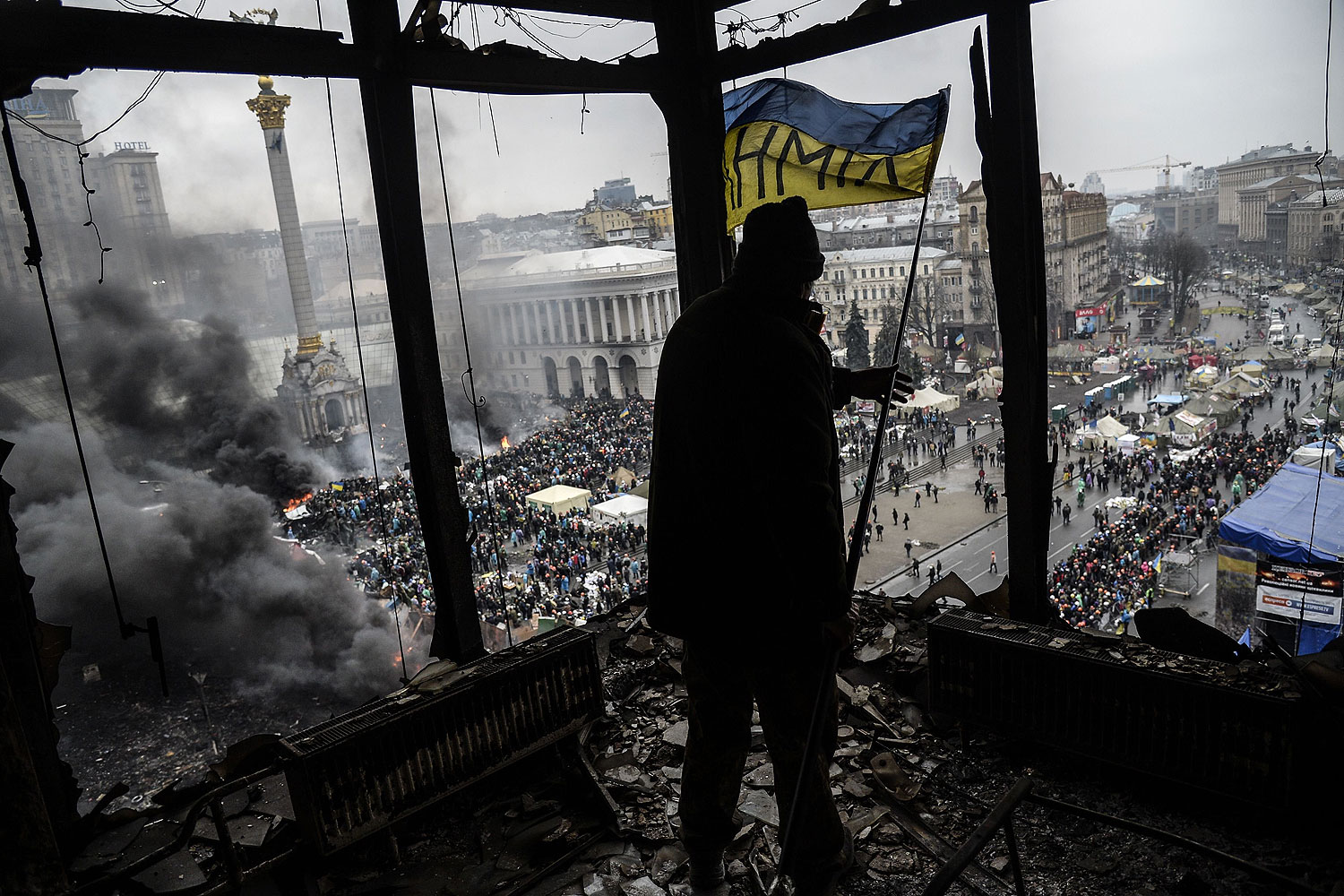
American or European news broadcasts about Ukraine, sometimes even those involving specialists and political scientists, tend to include phrases like “In Ukraine there is a struggle between the Eastern pro-Russian part and the Western pro-European part of the country.” People hearing this could be forgiven for thinking Ukraine consists only of two regions: the West and the East, animated simply by their pro-European or pro-Russian views.
This cliché is nothing new and, indeed, 20 years ago it was a reasonably accurate picture of things. The far east of Ukraine had more affection for Moscow than it had for Kiev, while the West had no love for either Kiev or Moscow, considering itself self-sufficient and part of Europe. Western Ukraine, once part of the Austro-Hungarian Empire and Poland, became part of the USSR only in 1939, unlike the East, which had long been a key source of Soviet industrial wealth, the site of mines, metal-working plants and barrack towns for the workers and their families who had come from all over the Soviet Union. There, almost all significant posts at the provincial, district and town levels were given to men and women from Russia or Soviet Ukraine.
In 1991, Ukraine celebrated the unexpected gift of independence. But in the East—in the coal-rich Donbass region—there was a frightened hush. While western Ukraine and other areas of the country happily started developing small businesses and embraced Ukrainian statehood, the East followed the model of post-Soviet Russia, with a criminal “carving up” of the region’s factories and the development of its own school of oligarchs driven first by a desire to keep Donbass for the use of the Donbass elite alone. In 2004, this elite decided to put forward its own candidate in the presidential election: Viktor Yanukovych.
Although his initial ascent to power was interrupted by the Orange Revolution, Donbass’s representative became the master of the whole country in 2010, and he repeated the policies of 1939.
Russian-speaking inhabitants of Donetsk, the largest city in Donbass, and surrounding mining towns were sent out to be chiefs of police, customs officials and heads of the justice system throughout the country. In Donetsk, a new joke went around: “The people of Donetsk are afraid to go out at night for fear of being grabbed and sent off to be a boss in some other region.” But the inhabitants of many other areas of Ukraine could find nothing to laugh at in the tough, unsmiling manner of their new bosses from Donbass.
The result was a complex national political picture—more complex than the simple division between East and West—and one that, I believe, defines Ukraine today.
Donbass became the shop floor and counting house of Yanukovych’s Party of Regions, a place for coal mining, metal smelting and unimaginably corrupt schemes that allowed state funds and taxes from the region’s businesses to disappear into thin air. Civil society was strangled, and this densely populated area couldn’t produce a single public figure of national importance, not one writer who engaged with the most pressing issues of the day.
The central and western regions had less money but, free from an oligarchy, more ideas and discussion. They became the arts-and-humanities department of the country, with a more active civil society and nonpolitical public figures.
Then there was Crimea, the only area of the country with a large percentage of pro-Russian inhabitants, though there also exists in this region a fast increasing Crimean Tatar population, which is generally anti-Russian. To my mind, the central-southern area and Zakarpattia area make up another region, the commercial region, with seaports like Odessa and Mykolayiv and the tradition of cross-border commerce with Romania, Hungary and Slovakia. There you notice more ideas and more discussion; they too have no time for Donbass.
With these forces ranged against him, Yanukovych finally fled from Kiev. But it is too early for the opposition to celebrate victory. The surviving Donbass elite will try to reassert itself on the national arena once it has caught its breath.
Kurkov is a Ukrainian writer and the author of the critically acclaimed novel Death and the Penguin
More Must-Reads From TIME
- The 100 Most Influential People of 2024
- Coco Gauff Is Playing for Herself Now
- Scenes From Pro-Palestinian Encampments Across U.S. Universities
- 6 Compliments That Land Every Time
- If You're Dating Right Now , You're Brave: Column
- The AI That Could Heal a Divided Internet
- Fallout Is a Brilliant Model for the Future of Video Game Adaptations
- Want Weekly Recs on What to Watch, Read, and More? Sign Up for Worth Your Time
Contact us at letters@time.com